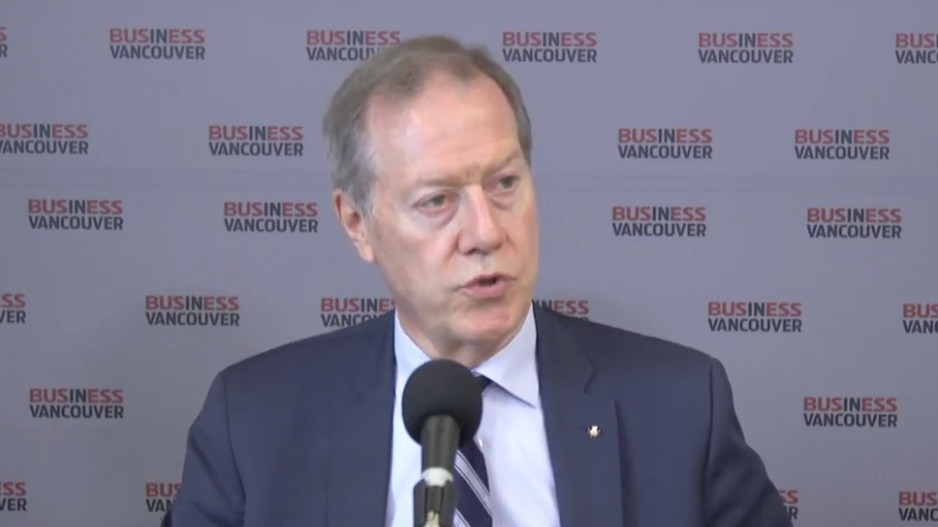The author of two NDP government-commissioned reports that set the stage for B.C.’s public inquiry into money laundering is not surprised that Commissioner Austin Cullen ruled that former BC Liberal government officials were not corrupt.
Despite accepting political donations from casino companies, Cullen found witnesses ex-Premier Christy Clark, and ex-Ministers Shirley Bond, Rich Coleman and Mike de Jong simply failed to do their jobs to properly oversee casinos.
"My sense is that, Mr. Justice Cullen is saying that there is nothing that led him to believe that there is criminal corruption, which means bribery, and the particular, specific provisions of our Criminal Code that apply to corruption,” said Peter German, the former RCMP Commissioner for Western Canada in 2011 and 2012. “But, you know, some people will say conflict of interest is a form of corruption, even though it doesn't lead to criminal charges and that sort of thing. So, yes, I can see people arguing that point, but I don't disagree with his finding.”
In Cullen’s June 15-published final report, he made two marquee recommendations: to hire an anti-money laundering commissioner and create a dedicated, provincial money laundering intelligence and investigation unit.
German, whose Dirty Money I and II reports were published in 2018 and 2019, said an oversight czar is innovative, but a full-fledged squad is not easy to build from scratch. He had recommended a new, dedicated casino police in his first report and points to the slow set-up of the Surrey Police Service as an example of the complexity.
“But the things you want to consider when starting a whole new unit is what about the others that are in this space, the RCMP, local police, and so forth?” he said.
Cullen’s report was critical of the RCMP and FINTRAC, the Financial Transactions and Reports Analysis Centre of Canada. It noted that implementation of German’s recommendations had “significantly curtailed the prevalence of illicit cash in B.C. casinos.”
German got his first report done in six months and released a sequel a year later. It helped trigger the launch of the Cullen Commission in May 2019 with an original two-year mandate. The pandemic and snap 2020 election led to extensions.
The Cullen Commission was inspired by the Charbonneau Commission, Quebec’s four-year inquiry into construction corruption that heard testimony from organized crime figures and provincial and municipal politicians. The Cullen Commission did not call any current or former mayors or bureaucrats from Vancouver or Richmond, for instance. Nor did it hear testimony from real estate developers, construction executives, luxury car dealers or stock brokers or promoters.
“The approach taken was quite different,” German said. “Charbonneau was really trying to put the bad guys on the witness stand and see where it took you and the suspects, etc. We didn't see that sort of approach here, it is much more of a civil litigation approach. It was a different approach that Mr. Justice Cullen took, not necessarily better or worse, but a different approach.”
At a news conference, Commission Counsel Brock Martland said decisions were made to prioritize subjects and witnesses based on the level of risk.
“I don't think we pretended ever that we'd be perfectly comprehensive and without taking in decades, and costing much, much more,” Martland said.
Cullen said his recommendation for an anti-money laundering commissioner is intended to tackle any issues that were not explored during the hearings.
“One of the reasons that I recommended the anti-money laundering commissioner is really to serve that purpose on an ongoing basis,” he said.
Regardless of any gaps, the issue of money laundering is on the public agenda and government has been forced to take action. German has set-up his own legacy at the University of B.C.’s law school.
“The ‘Vancouver model’ came up a lot during the last few years, it was a phrase coined by a professor in Australia, John Langdale, looking at what was taking place in our casinos and the movement of money from China,” German said.
“Well, why don't we change? Turn that around and create an anti-corruption institute, and call it the Vancouver Anti-Corruption Institute and really attempt to do good things with respect to this fight against corruption and money laundering.”




